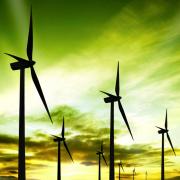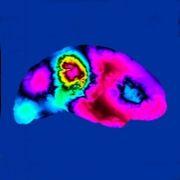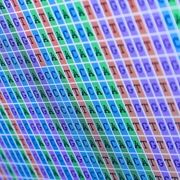Nanoscience and Nanotechnology
The unlimited potential of one millionth of a millimeter
Of all the academic institutions in Israel, Tel Aviv University was chosen to manage the Nano2life foundation, intended to encourage research projects in the field of nano-biology in Israel, in collaboration with the European Union.
So far this has resulted in the development of drugs against cancer, superchips used by the high tech industry and advanced memory chips.
Remember Steve Austin, the "Six Million Dollar Man"? Austin was the protagonist of a 1970s TV show about a man whose limbs had been replaced with bionic implants after an accident. After the surgery he discovered his new legs could run at a speed of 100 kilometers an hour, his right arm could lift heavy machinery and his eyes could make out details from a great distance, better than any telephoto lens. Thanks to these enhancements Austin was able to fight crime on behalf of a secret government agency.
But what was, barely 40 years ago, confined to the realms of science fiction could now become reality, thanks to researchers at Tel Aviv University who are developing a bionic eye using nanotechnology. The process is based on creating an artificial retinal implant and could benefit hundreds of thousands of people in the not-so-distant future. This is an unprecedented breakthrough, joining an already impressive array of world class innovations at the Center for Nanoscience and Nanotechnology at TAU, including a first-of-its-kind drug against cancer, a targeted drug that makes surgical intervention unnecessary, an organic material stronger than steel used for construction, among many other exciting creations.
Nano culture
TAU was the first university in Israel to found a dedicated nano center back in 2000. Today, with over 300 affiliated senior faculty and graduate students, TAU's Center for Nanoscience and Nanotechnology stands at the forefront of nano research and discovery. The Center's nano-medicine and nano-photonics teams in particular rank among the world leaders in the field, investigating a range of futuristic hybrid technologies in areas including tissue regeneration, drug delivery and solar energy harvesting.
The Center is an interdisciplinary framework combining the expertise of the faculties of exact sciences, life Sciences and engineering and medicine. This creates a "'Nano Culture" using innovative discoveries to address pressing, real life needs. The Center has eight operating laboratories and about 50 core research groups comprised of researchers from diverse fields.
Nanoscience and the industry
A nanometer is a measuring unit so small it's invisible to the human eye. The size of one thousandth of the diameter of a human hair, it allows scientists to imitate the natural process and construct tissue molecule by molecule. This allows a level of precision unlike anything currently available in the industry. The ramifications of molecular-level construction are enormous, allowing the creation of materials with adaptable characteristics as well as complex devices, all on a microscopic scale.
Experts estimate that in about 10 years the field will produce nano-robots capable of performing medical procedures and early disease detection, nano-metric tissue which will aid in tissue engineering and nano-machines which will function as artificial organs and be able to replace damaged limbs, echoing the premise of "The Six Million Dollar Man".
Many high-tech and bio-tech companies are collaborating with TAU nanoscientists underscoring TAU's standing as Israel's major center of nano-based R&D. The services offered by the labs and the availability of micro and nano equipment are helping companies develop products locally rather than outsource production abroad.
Current projects include the development of fiber-optic components, biological superchips capable of detecting infections and diseases, smart sensors used in the automobile industry and even nanoparticles for advanced printing technology. Among the companies making use of the Center's services are IMH, Elbit Systems, Mardin Technologies and others.





